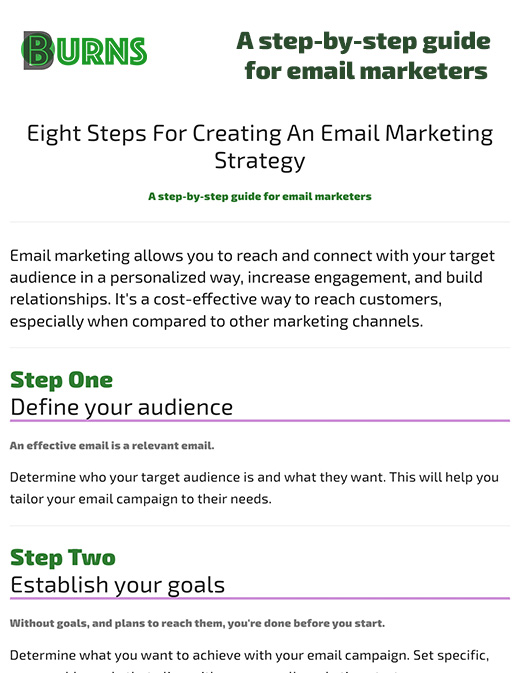Six Steps To Help You Create A Successful Digital Marketing Strategy
A step-by-step guide for digital marketers
Having a digital strategy can help you build an agile business that can adapt to changes in the market and take advantage of new opportunities. Here are some key steps to help you keep building a digital marketing strategy.
Step One
Assess the situation
Always helps to take an honest look at past to help optimize for the future.
The first step is to analyze your performance over the last year and evaluate what worked and what didn't work.
Step Two
What is the competitive landscape?
Healthy competition means you're in the right place. Know your market.
The second step is to evaluate your competitors' digital presence and use competitive research tools to get a free analysis of their strategy.
Step Three
Demographic, firmographic, and behavior characteristics
It's not what you know, it's who you know.
The third step is to define your target audience and create customer personas. Define your ideal customer profile and build towards it.
Step Four
Specific, measurable, achievable, relevant, and time-bound
Provide a clear direction for your digital marketing strategy.
The fourth step is to identify your goals and objectives and use your digital marketing strategy to achieve them.
Step Five
Improve brand reputation, credibility, and awareness
A content marketing plan helps businesses to stay organized and focused on their goals.
The fifth step is to develop a content marketing plan that includes video content marketing.
Step Six
Identify new opportunities for growth and innovation
By changing how you think about your strategy, you can identify new opportunities for growth and innovation.
The sixth step is to measure your results and adjust your strategy accordingly. Then repeat it again and again. Times change and strategues must be to as well.
Start taking advantage of new opportunities
By following these steps, businesses can create a solid digital marketing strategy that reduces waste, adds focus to their efforts, and builds on what is already working.
read_more Some additional resources and statistics
According to a survey by Smart Insights, nearly half (49%) of organizations are doing digital marketing without a concrete strategy.
Another survey of 350 small and medium business owners found that 50% do not have a marketing plan for 2019.
On the other hand, a more recent survey found that 55% of small business owners are planning on investing more in their digital marketing strategies
Additionally, only 37% of companies do not have a clearly defined content marketing strategy.
Awesome examples:
Coca-Cola's "Share a Coke" campaign: Coca-Cola's digital marketing strategy focuses on creating personalized experiences for its customers. The "Share a Coke" campaign is a great example of success, as it allows customers to personalize their Coke bottles with their own names or the names of their friends and family.
Airbnb's digital marketing strategy focuses on building a strong community of users through social media. The company uses social media to engage with its users, share user-generated content, and promote its services.
